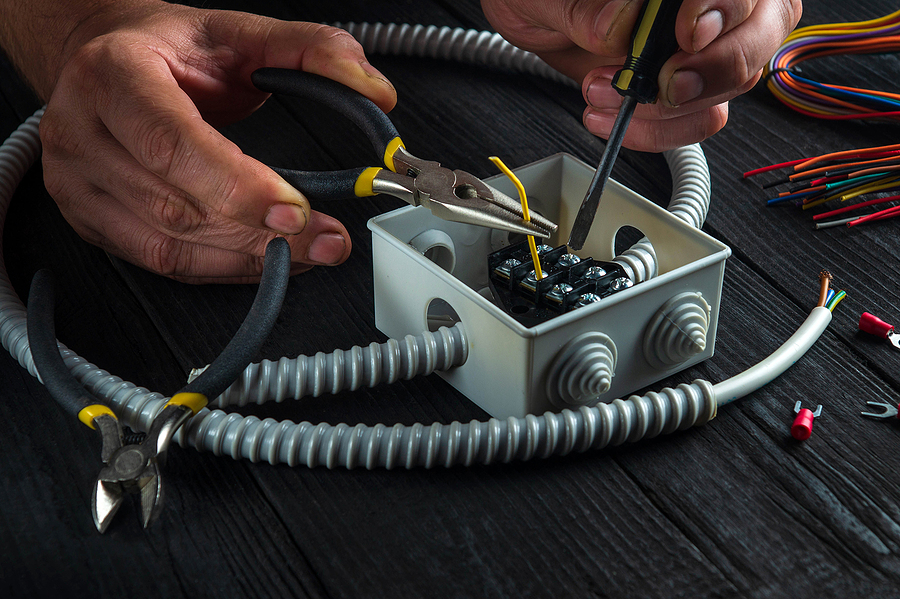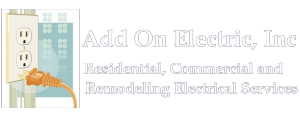Top Smart Electrical Safety Advice Every Homeowner Should Know

Do you know, you engage with electricity every day? You switch on a light, zap a morning toast, or charge your phone. Sure, it’s routine! But don’t let familiarity make you careless. Electricity is as mighty as it can be perilous.
Can’t do the complex repairs or upgrades? Call an expert. But here are simple safety tips you can follow:
Use The Right Wattage
Choosing the right wattage for your appliances and light fixtures matters a lot. It keeps electrical problems at bay.
So, double-check each of your devices and lamps. Ensure they’re fitted with the right wattage bulbs.
For fixtures without a listed wattage? Stick to a safe 60-watt bulb or lower. Ceiling fixtures with no markings? A 25-watt bulb should be perfect!
Don’t Ignore Your Outlets: The First Step to Home Protection
Ever crammed too many plugs into one outlet? Resist that urge. Overloaded outlets are known troublemakers. Remember to feel if they’re cool and have protection with a faceplate. Make sure they work properly.
Here are stellar outlet safety tips from ESFI:
- Stay away from using extension cords or plug extenders for appliances.
- Only plug one heat-producing appliance into an outlet at once.
- Discover an outlet getting hot? Call a licensed electrician right away!
- It’s vital to remember that power strips only grant extra outlets—with no extra power.
- Want to monitor power loads closely? Smart plugs can do that and more, like cutting off power if an outlet gets too hot.
- Spot a frayed or damaged electrical cord? Replace or repair it pronto. Safety first, always.
Such simple steps can help ensure a safe and secure space for you and your beloved family.
Damaged Power Cords Are a Serious Safety Risk
Damaged power cords can be sneaky villains in your home, triggering fires and posing electrocution hazards.
Keep an eye on all power and extension cords. Regularly inspect for signs like fraying or cracking. Any signs of wear or damage call for immediate repair or replacement. Here’s what you must not do. Don’t staple cords into place or hide them under rugs or furniture. With cords under rugs, there’s a risk of tripping and overheating. And furniture may squish the cord’s insulation, impairing the wires inside.
Keep Your Used and Unused Cords Tidy and Secure
The rules of electrical safety don’t take a break, even when the cords do. How you store cords is crucial. Keep them out of reach of curious children and playful pets that might chew on them. Avoid wrapping cords tightly around objects, as it can strain the cord or cause it to get too hot. Remember, a cord should never lounge on a hot surface—it’s sure to suffer damage to its insulation and wires.
Unplug for Safety
Here’s an easy hack—unplug appliances when not in use. Not only does it stem the phantom drain (the sneaky energy consumed by an idle device), but it also safeguards the appliances from overheating or power surges.
Sounds like a chore, but here’s the good news. The latest generation of smart plugs has a trick up their sleeve. You can schedule power supplies for each outlet, making it less of a task to remember unplugging.+
Ward Off Water and Electric Shocks
Water and electricity are foes. For top-notch electrical safety, keep electrical stuff dry and away from water. The result? No damage to appliances and reduced risk of injuries and electrocution. Whenever you’re around electrical gadgets, make sure your hands are dry.
Place electrical items far from plant pots, fish tanks, sinks, showers, and tubs. This nifty move lessens water and electricity crossing paths.
Give Appliance Breathing Space
Electrical equipment needs room to breathe! Without proper air circulation, devices can overheat, short out, and morph into fire hazards. Ensure your appliances have enough space for air to circulate. Avoid running electrical gear in enclosed cabinets.
It’s essential to keep flammable objects away from all appliances and electronics too. What deserves special attention? Your gas or electric dryer. Keep it at least a foot from the wall. Safety first!
Exhaust Fans
Some appliances come with exhaust fans. But watch out—they can get dirty. Clogged fans burden the appliance. It works harder, shortening its lifespan. Plus, the risk of overheating intensifies, turning it into a hazard.
Dirt buildup and dangerous gas emissions could trigger an electrical fire. What’s the fix? Clean your exhaust fans frequently to prevent accidents.
Electrical safety, especially at home, should be a prime concern. Simple yet effective measures like keeping devices away from water, providing proper air circulation, and cleaning exhaust fans help protect you and your family.
An observant and cautious approach can go a long way in preventing electrical accidents and ensuring a safe environment.
The Safety Code
The golden rule of electrical safety? “Read the instructions”. Knowing the correct way to operate appliances improves device performance and keeps you safe. Got a shock from an appliance? Stop using it. Don’t touch it until a skilled electrician approves it’s safe.
Handle Heaters with Care
Combustible items are heaters’ worst companions. Always keep them away from portable heaters and built-in furnaces. Create a safety-zone around heating appliances—store combustibles far away. Should you use a portable heater, keep it far from drapes. Make sure it is on a steady surface—no accidental tipping here.
Ever wondered about your water heater’s temperature setting? Hotter isn’t always better. High settings increase energy use and risk of scalding, especially around kids.
Experts you Can Trust
Your best bet against electrical fires or electrocution? Hire a qualified, licensed electrician for home electrical work.
Choosing an electrician isn’t just about price. Judge the complete picture—their character and expertise, how easy it is to work with them, and the overall value they provide. A competent electrician saves you time and inconvenience. They get the job done right. And safely. They could even suggest efficient ways to save on electricity. A good relationship with your electrician pays off—it saves you time and money. Need help with an electrical project? Give Add On Electric a ring. We’re happy to assist.
